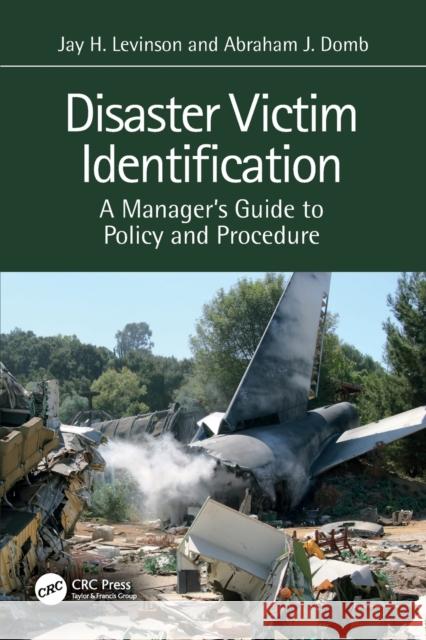Disaster Victim Identification: A Manager's Guide to Policy and Procedure » książka
Disaster Victim Identification: A Manager's Guide to Policy and Procedure
ISBN-13: 9781032385037 / Angielski
Disaster Victim Identification: A Manager's Guide to Policy and Procedure
ISBN-13: 9781032385037 / Angielski
(netto: 287,97 VAT: 5%)
Najniższa cena z 30 dni: 277,00
ok. 16-18 dni roboczych.
Darmowa dostawa!
Disaster Victim Identification: A Manager’s Guide to Policy and Procedure’s guiding thesis explains why disaster victim identification (DVI) must be fundamentally integrated—at the outset—into general disaster planning and operations procedures. By doing so, it allows for pre-event assessment of any risks and vulnerabilities, in coordination with planning and response agencies, so that the on-site response isn’t the first time they have communicated and worked together. The book outlines the importance of exercising, interagency memoranda of understanding (MOU), and coordination in advance to provide the best, most effective response that optimally serves both the victims and the community. DVI requires a multi-disciplinary approach and, as such, plans should take into consideration and account for possible integration of outside assistance into the general work plan and flow. By doing this, practical action and measures—sometimes coordinated impromptu depending on the nature and scale of a disaster—can be undertaken both quickly and seamlessly. Coverage outlines the overall DVI process, its various methodologies, and how it serves as an integral part of overall disaster response. Disaster Victim Identification brings together the expertise of two professionals with longstanding, extensive first-hand experience in the field. This includes working at, as well as supervising coordination of, DVI response to such scenes. The book will be a welcome addition to professionals by examining what works, what doesn’t, and how to maintain best practices while avoiding common mistakes.
Disaster Victim Identification: A Manager’s Guide to Policy and Procedure’s guiding thesis explains why disaster victim identification (DVI) must be fundamentally integrated—at the outset—into general disaster planning and operations procedures. By doing so, it allows for pre-event assessment of any risks and vulnerabilities, in coordination with planning and response agencies, so that the on-site response isn’t the first time they have communicated and worked together.
The book outlines the importance of exercising, interagency memoranda of understanding (MOU), and coordination in advance to provide the best, most effective response that optimally serves both the victims and the community. DVI requires a multi-disciplinary approach and, as such, plans should take into consideration and account for possible integration of outside assistance into the general work plan and flow. By doing this, practical action and measures—sometimes coordinated impromptu depending on the nature and scale of a disaster—can be undertaken both quickly and seamlessly.
Coverage outlines the overall DVI process, its various methodologies, and how it serves as an integral part of overall disaster response. Disaster Victim Identification brings together the expertise of two professionals with longstanding, extensive first-hand experience in the field. This includes working at, as well as supervising coordination of, DVI response to such scenes. The book will be a welcome addition to professionals by examining what works, what doesn’t, and how to maintain best practices while avoiding common mistakes.











